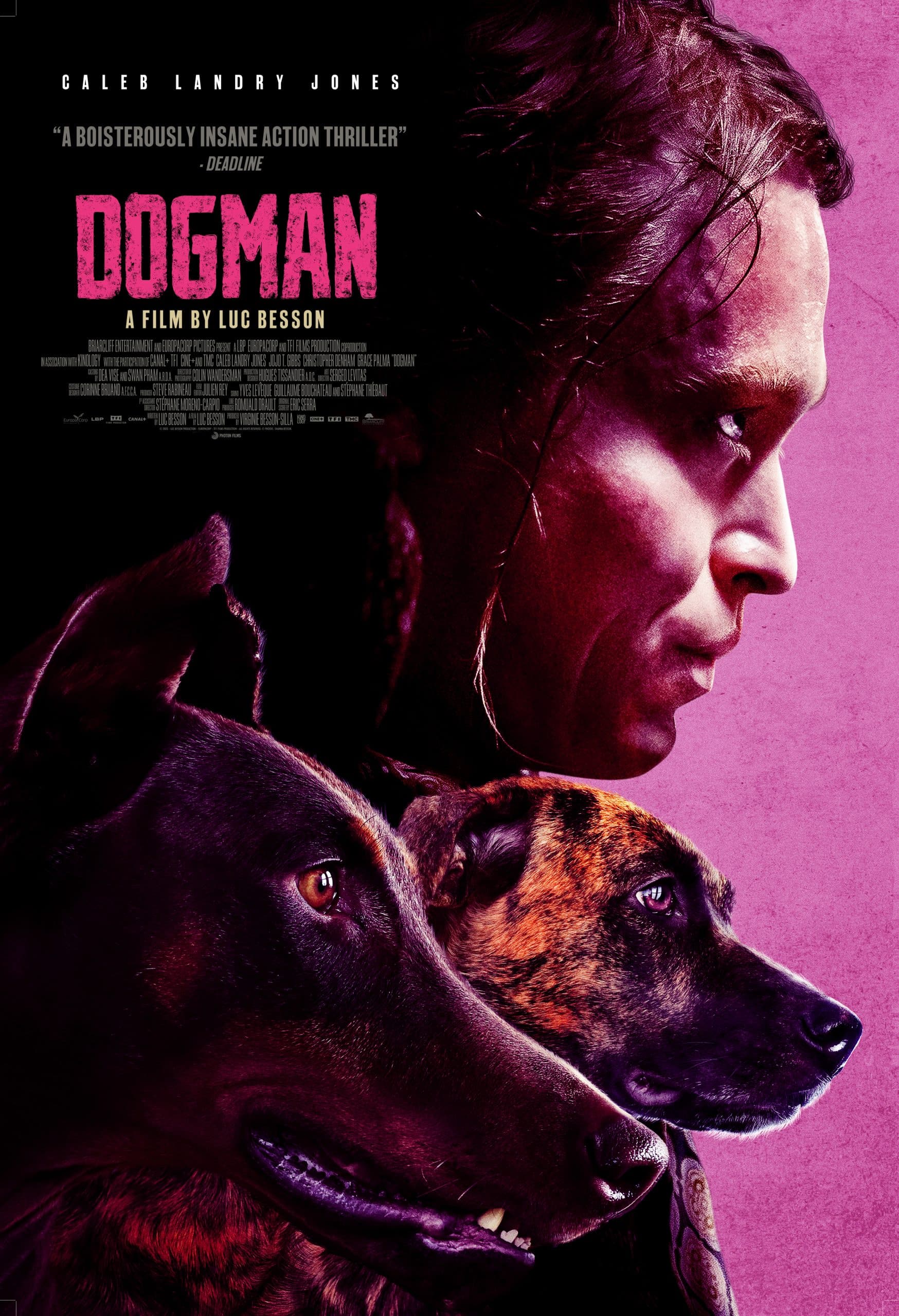
- Starring
- Caleb Landry Jones, Jojo T. Gibbs, Christopher Denham
- Writer
- Luc Besson
- Director
- Luc Besson
- Rating
- R (United States)
- Running Time
- 113 minutes
- Release Date
- April 5th, 2024
Overall Score
Rating Summary
Luc Besson is certainly not the first director to heavily incorporate dogs as both a literal and symbolic element of his crime films—hell, he isn’t even the first one to call the film in question Dogman. After all, there’s an inherent intrigue in the innocence and corruptibility through blind loyalty of Man’s Best Friend that makes our canine brethren so well-matched to the stories of wronged souls steered towards the dark side. What filmmakers like Alejandro González Iñárritu and Matteo Garrone understood, though, is that dogs work best in this capacity as more of a background element, a metaphor for this desecration of purity; Besson’s DogMan takes its symbolism very literally, to the point where it quickly gets, for lack of a better word… rather stupid.
Paving the way for a framing device that does precious little for the film surrounding it, Besson opens his film in media res on a police bust of a wheelchair-bound man named Doug (Jones), bloodied, beaten and dressed head-to-toe in his best Marilyn Monroe garb. In the loading dock of his truck is a bevy of mongrels covering more breeds than you can count. At the police station, an overworked psychiatrist named Evelyn (Gibbs) is sent in to pick his brain, setting the stage for a backstory of severe child abuse and criminal mastery, all relieved and abetted by the presence of Doug’s faithful and ever-growing pack of dogs.
If DogMan works at all—which it does only in the margins—it’s thanks to Jones’ incredibly transfixing presence. More than one comparison has been made between Besson’s film and Joker, but aside from superficial similarities like a mentally unwell man caked in face-paint (and the fact that this film gets so ridiculous that it may as well be an origin story for a forgotten member of Batman’s Rogue’s Gallery), the greater connection comes from Jones, like Joaquin Phoenix, possessing a strange ability to play these unhinged characters with enough compassion to sell audiences on the subpar stories in which they live. When they find a narrative that matches the gravity of their performances—The Master for Phoenix, or Nitram for Jones—then these actors’ particular wavelength of oddity works wonders to ground the characters where lesser performances might overshoot their mark. The way that Jones finds any pocket of communicable sympathy for this character, without overlooking the obviousness of his mental state, is a credit to his immunity to Besson’s direction, rather than a credit to the direction itself. (For further proof, note that nearly every other performance in the film strains watchability altogether.)
Over the course of the film, Besson asks for a fairly hefty suspension of disbelief regarding the extent to which Doug’s canine goon squad is capable of carrying out his bidding. To a certain extent, one can’t help but simply roll with the punches in order to buy into any aspect of DogMan‘s narrative progression, but no matter how smart dogs are (and they are very smart), there’s a limit to what audiences can reasonably accept in a film not called Cats & Dogs. Granted, this is the director of Lucy, not Manchester by the Sea; an overwhelming adherence to realism in the depiction of coping with trauma shouldn’t really be expected on the menu. In any case, Besson is simply so caught up in the goofiness of his premise with an underlying self-seriousness that just doesn’t mesh with it whatsoever. As he’s European, one can argue that this self-seriousness is, in fact, entirely tongue-in-cheek, but the film around it is just too overwhelmingly asinine to even take its characters as moderately seriously as Besson demands; it’s silly, but that doesn’t make it feel sincere.
Ultimately, there is some semblance of thematic texture regarding identity, religion and personal responsibility buried deep in the backyard next to Besson’s favourite chewed-up tennis ball. DogMan flirts with these greater ideas with the confidence of a truly bold European art-house project (maybe he thought he was making manly Titane for doggos?), but Besson’s vision is simply too focused on the inanity of its premise to deliver anything more substantive than base-level musings about animal instinct in relation to society. It is safe to say we know how those Joker comparisons really originated.
still courtesy of Myriad Pictures
If you liked this, please read our other reviews here and don’t forget to follow us on Twitter or Instagram or like us on Facebook.
Discover more from
Subscribe to get the latest posts sent to your email.
